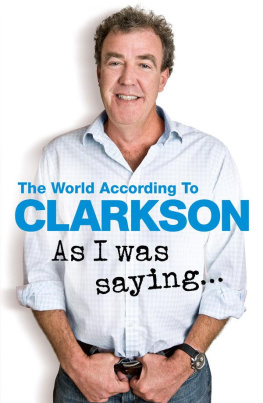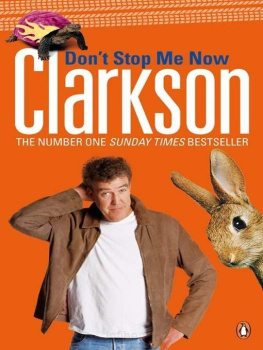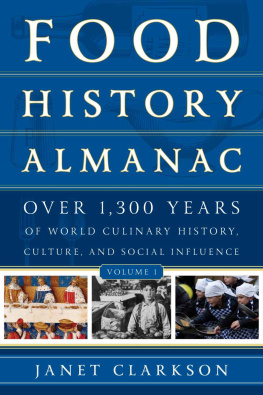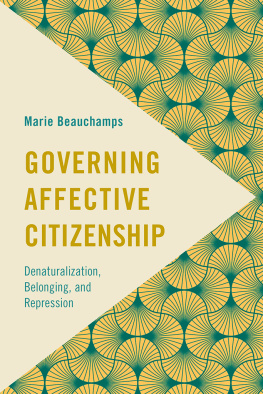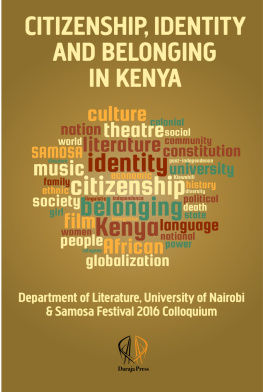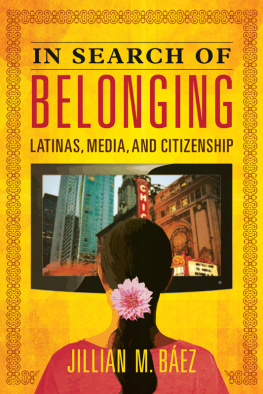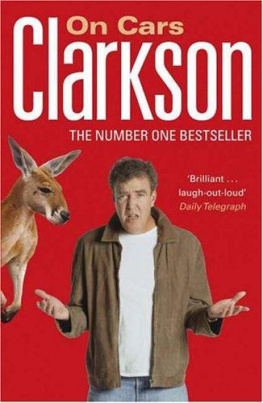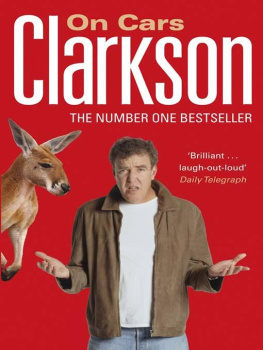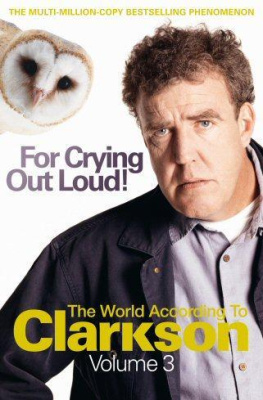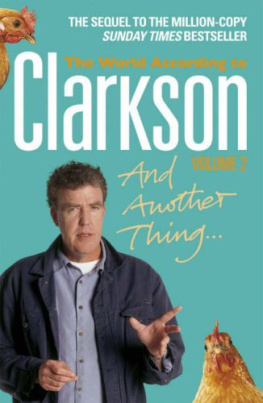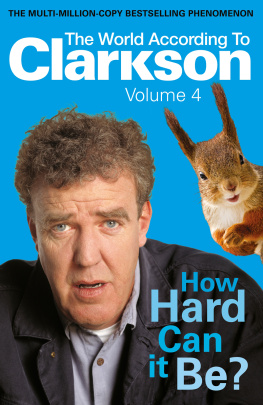Clarkson - Belonging: the paradox of citizenship
Here you can read online Clarkson - Belonging: the paradox of citizenship full text of the book (entire story) in english for free. Download pdf and epub, get meaning, cover and reviews about this ebook. City: Toronto, year: 2014, publisher: House of Anansi Press Inc, genre: Romance novel. Description of the work, (preface) as well as reviews are available. Best literature library LitArk.com created for fans of good reading and offers a wide selection of genres:
Romance novel
Science fiction
Adventure
Detective
Science
History
Home and family
Prose
Art
Politics
Computer
Non-fiction
Religion
Business
Children
Humor
Choose a favorite category and find really read worthwhile books. Enjoy immersion in the world of imagination, feel the emotions of the characters or learn something new for yourself, make an fascinating discovery.
- Book:Belonging: the paradox of citizenship
- Author:
- Publisher:House of Anansi Press Inc
- Genre:
- Year:2014
- City:Toronto
- Rating:4 / 5
- Favourites:Add to favourites
- Your mark:
- 80
- 1
- 2
- 3
- 4
- 5
Belonging: the paradox of citizenship: summary, description and annotation
We offer to read an annotation, description, summary or preface (depends on what the author of the book "Belonging: the paradox of citizenship" wrote himself). If you haven't found the necessary information about the book — write in the comments, we will try to find it.
The most anticipated nonfiction book of the season, this years Massey Lectures on citizenship is by former Governor General and bestselling author Adrienne Clarkson.
Belonging: the paradox of citizenship — read online for free the complete book (whole text) full work
Below is the text of the book, divided by pages. System saving the place of the last page read, allows you to conveniently read the book "Belonging: the paradox of citizenship" online for free, without having to search again every time where you left off. Put a bookmark, and you can go to the page where you finished reading at any time.
Font size:
Interval:
Bookmark:
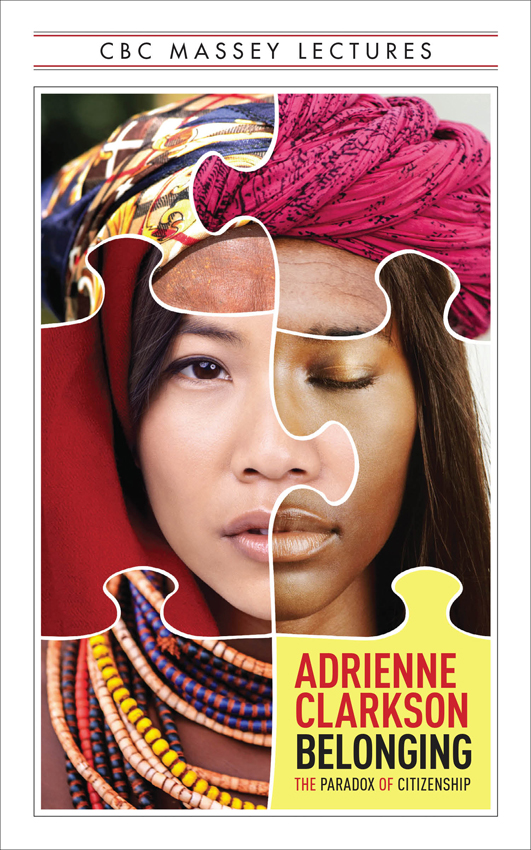
THE MASSEY LECTURES SERIES
The Massey Lectures are co-sponsored by CBC Radio, House of Anansi Press, and Massey College in the University of Toronto. The series was created in honour of the Right Honourable Vincent Massey, former Governor General of Canada, and was inaugurated in 1961 to provide a forum on radio where major contemporary thinkers could address important issues of our time.
This book comprises the 2014 Massey Lectures, Belonging: The Paradox of Citizenship, broadcast in November 2014 as part of CBC Radios Ideas series. The producer of the series was Philip Coulter; the executive producers were Bernie Lucht and Greg Kelly.
ADRIENNE CLARKSON
Adrienne Clarkson became Canadas twenty-sixth Governor General in 1999 and served until September 2005. She is the bestselling author of Heart Matters: A Memoir , Room for All of Us: Surprising Stories of Loss and Transformation , and Norman Bethune: Extraordinary Canadian . In her multi-faceted career as an accomplished broadcaster and distinguished public servant, she has received numerous prestigious awards and honorary degrees in Canada and abroad. In 2005, she co-founded the Institute for Canadian Citizenship. In 2006, she established the Clarkson Cup, which is now the championship trophy for the Canadian Womens Hockey League. In 2007, she was appointed Colonel-in-Chief of Princess Patricias Canadian Light Infantry. A Privy Councillor and Companion of the Order of Canada, she lives in Toronto.
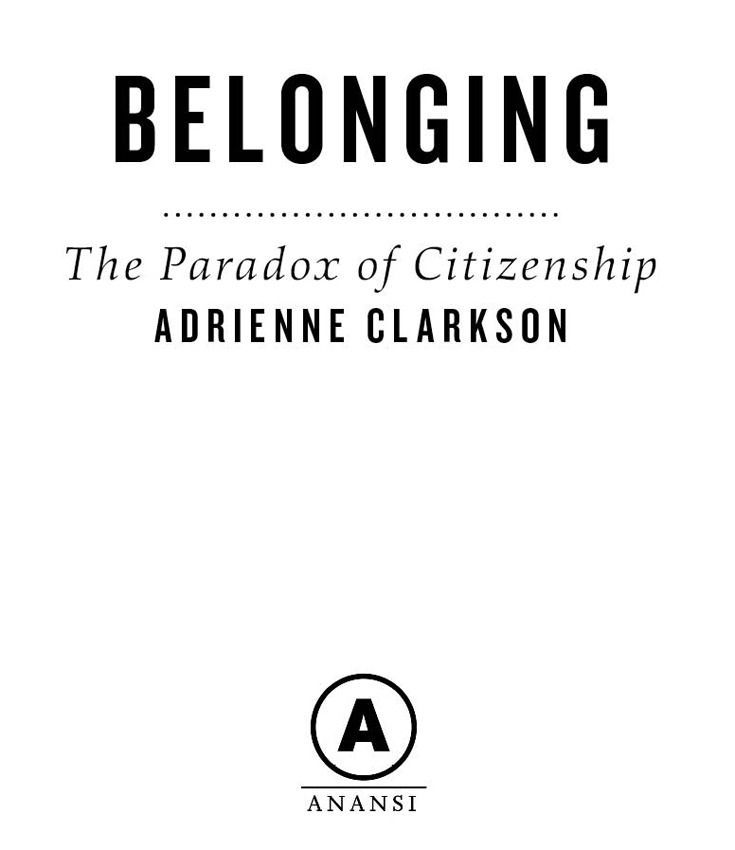
Copyright 2014 Adrienne Clarkson and
Canadian Broadcasting Corporation
All rights reserved. No part of this publication may be reproduced or transmitted in any form or by any means, electronic or mechanical, including photocopying, recording, or any information storage and retrieval system, without permission in writing from the publisher.
Distribution of this electronic edition via the Internet or any other means without the permission of the publisher is illegal. Please do not participate in electronic piracy of copyrighted material; purchase only authorized electronic editions. We appreciate your support of the authors rights.
This edition published in 2014 by
House of Anansi Press Inc.
110 Spadina Avenue, Suite 801
Toronto, ON, M5V 2K4
Tel. 416-363-4343
Fax 416-363-1017
www.houseofanansi.com
Library and Archives Canada Cataloguing in Publication
Clarkson, Adrienne, 1939, author Belonging : the paradox of citizenship /
by Adrienne Clarkson.
Includes index. Issued in print and electronic formats.
ISBN 978-1-77089-837-0 (pbk.).ISBN 978-1-77089-839-4 (html)
1. Citizenship. 2. Citizenship History. I. Title.
JF801.C59 2014 323.6 C2014-902706-0 C2014-902707-9
Library of Congress Control Number: 2014938784
Jacket design: Alysia Shewchuk

We acknowledge for their financial support of our publishing program the Canada Council for the Arts, the Ontario Arts Council, and the Government of Canada through the Canada Book Fund.
For John,
Kyra and Chris,
Blaise and Tim,
Talia, Mylo, Theo, and Kai
with whom I belong
CONTENTS
Chapter One
The Circle Widens
Chapter Two
The Glory That Was Greece
Chapter Three
The Cosmopolitan Ethic
Chapter Four
Ubuntu
Chapter Five
Gross National Happiness
Notes
Bibliography
Permissions
Acknowledgements
Index
With respect to what is eternal, there is no difference between being possible and being .
Aristotle, Physics
CHAPTER ONE
THE CIRCLE WIDENS
WE ASSUME THAT BELONGING begins at home, in family bonds. Helpless as infants, we depend on family to nurture and protect us we have the longest period of dependency of any mammal. Gradually, we become independent, learning behaviour and values from other people. In the 1970s, the British-American anthropologist Colin Turnbull published The Mountain People , a study of one tribal society, the Ik, that descended to appalling depths when their traditional nomadic grounds were severely restricted by the Ugandan government in order to create a national park. The work was later adapted for the stage by the English director Peter Brook. Both the book and the play caused a sensation.
In our benevolently romantic way, we imagine that members of this kind of semi-nomadic society are self-regulating hunting, foraging, and sharing food and shelter according to perceived needs. We also assume that they would have close family bonds and would look out for each other with mutual need and understanding.
Indeed the Ik did forage and farm, but with their traditional movements and patterns restricted, the family structure and the foundation of their society soon collapsed. So distorted had the tribes need for survival become that they could no longer uphold the values we consider human: caring for each other, sharing food, risking danger to save the weak, and, most important of all, raising children to adulthood. Instead, Turnbull revealed a society that manifested nature red in tooth and claw.
In the pursuit of survival, selfishness became the norm and the search for food became the centre of the Iks lives. Not only did they not share food, they searched for it alone, and they stole it from each other and even from children. As toddlers, children were thrown out of the family hut and fended for themselves near the outskirts of the village. When individuals found a source of nourishment, they ate in hidden solitude. If they found more food than they needed, they gorged until they vomited. They had become so consumed by their own survival that they simply did not care about wives, husbands, and children. Sexual relations more or less ceased, since producing children meant another mouth to feed and more competition for food.
The reasons for the decline of the Ik tribe were much debated at the time. Generally, the Ik seemed to demonstrate that the social structures, the family structures, which we consider inherent to human beings, were not at all necessary; the Ik seemed to be a people who could survive without the bonds of kinship, loyalty, and sacrifice. All structures and value systems can break down if their basis is severely limited, artificially restricted, and continually denied. The lesson that Colin Turnbull drew from the Ik forty years ago is the same one we can draw now: if we remove our sense of belonging to each other, no matter what our material and social conditions are, survival, acquisition, and selfish triumphalism will endure at the cost of our humanity. Under extreme circumstances, each and every one of us is capable of a mentality that brings about the abandonment of children, the lack of cultivation of human relationships, and the deliberate denial of love.
That our humanity can be lost for the sake of our survival is not a new lesson. The sacrifice of others in order to save oneself has been portrayed by artists like the nineteenth-century French painter Thodore Gricault, whose work The Raft of the Medusa depicts survivors of a shipwreck throwing each other off a raft in order to save the fittest. Starving and thirsty survivors killed and ate their weakest companions. The painting caused an enormous scandal at the time that it was first shown, in 1819.
It is society that makes it possible for us to develop ourselves as human beings. Personal relationships enrich us, work makes us feel useful, and goals give us purpose. We are part of a group, as we are all born biologically from a union. And it is as part of a group that we yearn to belong. If we concern ourselves with the idea that we exist because others exist, that we are in a web of human relationships, then we understand our individualism in a different way from that of the solipsist. Individuals are not independent of each other. We have individual rights, but we also have duties to others. But if we assumed that relationships are on a cost-benefit ratio, they would therefore be impermanent and fluid by definition.
Font size:
Interval:
Bookmark:
Similar books «Belonging: the paradox of citizenship»
Look at similar books to Belonging: the paradox of citizenship. We have selected literature similar in name and meaning in the hope of providing readers with more options to find new, interesting, not yet read works.
Discussion, reviews of the book Belonging: the paradox of citizenship and just readers' own opinions. Leave your comments, write what you think about the work, its meaning or the main characters. Specify what exactly you liked and what you didn't like, and why you think so.


